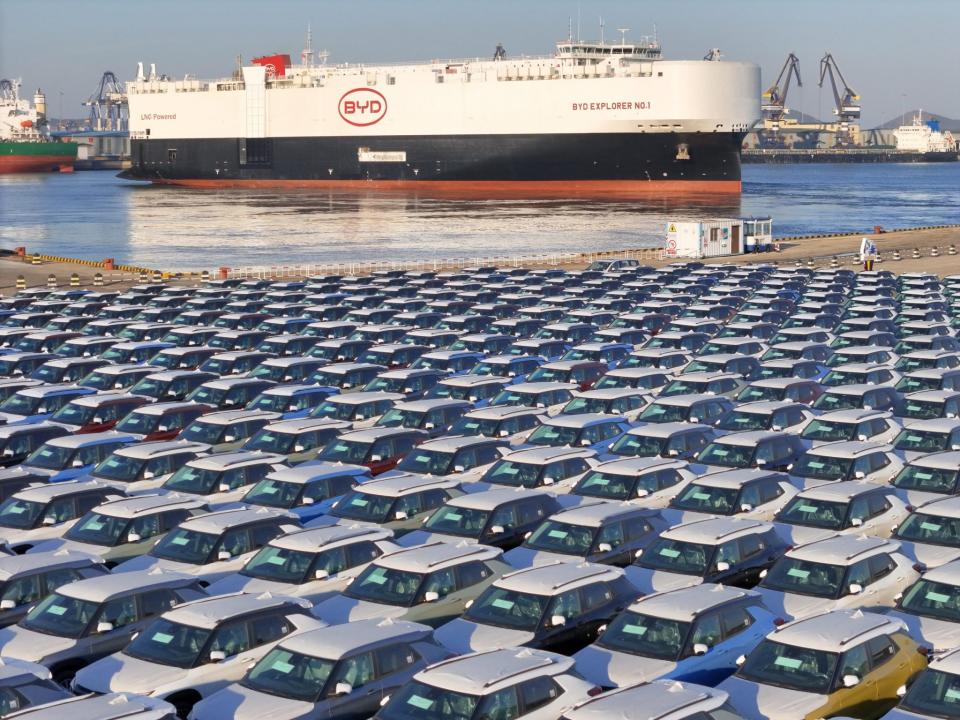Germany and Sweden dragged into trade war against their will as EU slaps 38% tariffs on Chinese EVs

Some of Europe’s biggest hitting economies are digesting a new phase in its trade war with China, as the EU finally hits the country’s carmakers with prohibitive tariffs.
Chinese automakers have been slapped with import tariffs reaching up to 38.1%, the European Commission confirmed on Wednesday. The tariffs follow a probe launched by the European Commission last year into anti-competitive subsidies for China’s biggest carmakers BYD, Geely, and SAIC.
BYD has received the most lenient tariff of 17.4% on its imports. Geely was hit with a 20% duty on its cars, while SAIC faced the most aggressive tariff of 38.1%. The EU said all BEV producers in China that didn’t cooperate with the EU’s investigation would also receive 38.1% tariffs. They will come into place next month before a final decision is made in November
It concludes a lengthy lobbying battle that split Europe between countries in favor of punishing China, and those nervous about the backlash Chinese retaliation might have on its exporting industries.
The Financial Times and Politico reported that German Chancellor Olaf Scholz has been intensely lobbying to minimize the scale of tariffs introduced by the EU.
Scholz, alongside lawmkers in Sweden and Hungary, is concerned about retaliatory tariffs that could be imposed by China. China placed tariffs on French brandy in January in the first sign of a stewing trade war between the regions.
Other countries, namely France and Spain, have been defiant in arguing the EU should place aggressive tariffs on Chinese EVs.
The tariffs leave the EU at a halfway house. The bloc is too reliant on China’s economy to follow the U.S. in placing 100% tariffs on EV imports, but it also can’t afford to take a laissez-faire approach to a price war its crucial native carmakers are destined to lose.
In addition to the effect subsidies have on artificially lowering prices, Chinese EV makers’ control of their supply chain also makes them several orders of magnitude cheaper than European cars.
There are 13.8 million people employed directly and indirectly in Europe’s automotive sector whose long term futures have been the source of debate.
Chinese automakers have sped up plans to build factories in Europe to skirt import tariffs. Optimists say that while that would be a pain for carmakers, it would at least provide employment opportunities for workers on the continent.
In a note to Fortune, the Economist Intelligence Unit’s industry director, Ana Nicholls, said there would undoubtedly be negotiations between European and Chinese authorities before a final decision is reached later this year.
“This offers a chance to ward off a trade war that could result in China restricting access to some key EV inputs, such as batteries or critical minerals,” Nicholls said.
A representative for BYD declined to comment.
Will it work?
The question facing European lawmakers now is whether the tariff will be effective in blunting China’s onslaught into Europe.
Research from campaign group Rhodium found that China’s profitbaility in Europe meant only import tariffs exceeding 50% would be enough to put a dent in China’s shipments to the bloc.
However, the think tank Kiel Institute for the World Economy cut a more optimistic tone. In research published in May, predicted a 25% tariff on Chinese EVs would reduce imports by a quarter.
While the net impact would be fewer EVs in Europe, carmakers on the continent would likely be the biggest beneficiaries according to Kiel, followed by those in the U.K.
“For consumers, this is likely to result in higher prices for electric vehicles because production within the EU is significantly more expensive than in China due to higher energy and material prices and, above all, significantly higher labor costs,” says Julian Hinz, a trade researcher at the Kiel Institute.
Felipe Munoz, global automotive expert at JATO Dynamics, says there are now two problems facing Western automakers. The first involves a shift in China from Western cars to Chinese ones among consumers. Retaliatory tariffs from China on European EVs will likely speed up that transition.
The second is that the West is still highly dependent on Chinese components for its batteries, another risk in a new trade war reality.
“The West is not in the best position right now,” Munoz says.
This story was originally featured on Fortune.com

 Yahoo Finance
Yahoo Finance 